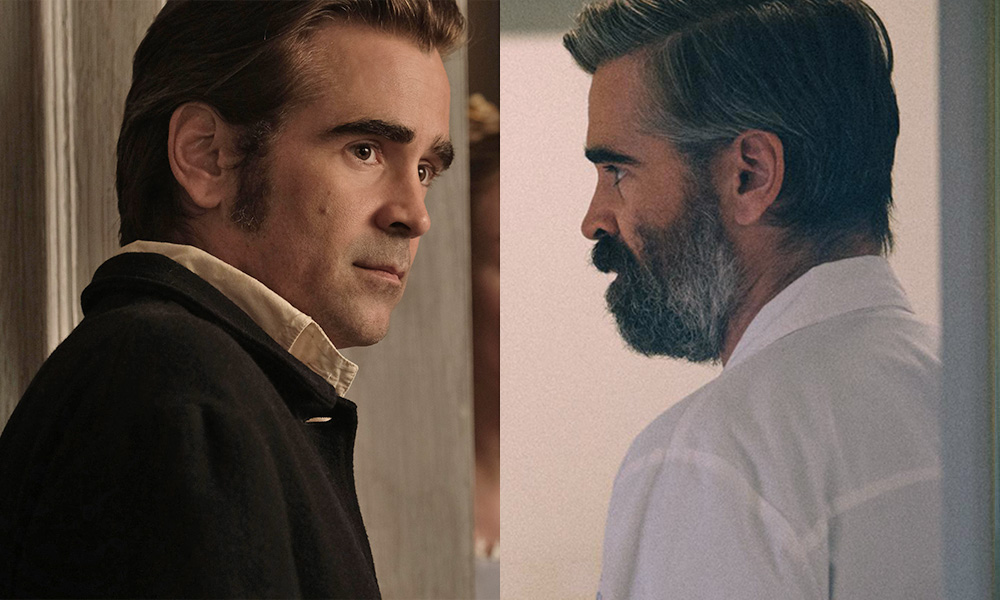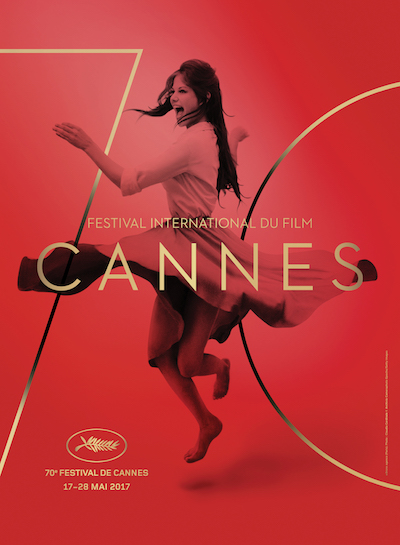Cannes 2017: Awards predictions and highlights from the festival

Once again, we were back in Cannes reporting for you – our dear readers – on the best films presented at the festival. On Sunday, at the Palais des Festivals, all the winners will be announced so we asked our dream team – The Upcoming’s Chief Film Critic Sam Gray and Cannes veteran Joseph Owen – what are their predictions and in general what was good.
Joseph Owen
Palme d’Or
There is talk here that Robin Campillo’s 120 Beats per Minute may snatch the Palm. Although impressive, with an excellent ensemble cast, I thought it needed greater narrative focus and fiercer editing. It wouldn’t be a travesty of justice if it won, though. I didn’t see many in competition this year but I liked The Beguiled – it certainly won’t win but some wonderfully deadpan performances from Nicole Kidman and Kirsten Dunst, as well as solid direction from Sofia Coppola, made for a purely enjoyable experience.
Best director
An outside speculation: Kornél Mundruczó. His film Jupiter’s Moon was an ambitious failure and received boos at the press screening. But there are some truly astonishing scenes and the Jury may reward the effort and ingenuity that went into the flight sequences. In a festival where many of the European art films merge into a single grey palette, this was an entry with some startling, unforgettable images. Either that or the Jury will go for one of the moody Russians.
Best actor
The chatter is that Robert Pattinson in Good Time may take the actor prize. I wasn’t convinced, either by his performance or the film as a whole. The pulsating score felt like a veil for the picture’s shallowness and shortcomings. But Pattinson is suitably gruff in the role and offers a convincing New York accent. He’s not bad but I found his character Connie quite inscrutable and his motivations mostly inexplicable. Out of the competition films I saw, Nahuel Pérez Biscayart might win it for his turn as the tragic, gaunt, bug-eyed, rebellious ACT UP activist in Campillo’s 120 BPM.
Best actress
If Adèle Haenel actually had some screen time in 120 BPM it would of course be her. As Haenel’s role is reduced to a walk-on-walk-off-walk-back-on-for-a-bit part, I will go for Kim Min-hee in Hong Sang-soo’s The Day After. A sketchy film by most accounts, Min-hee offers a nuanced impression of Song Areum, an articulate, literate and dignified office worker who has to put up with her philandering, self-pitying boss. It’s a really well studied, thoughtful performance that almost certainly won’t win. Wouldn’t it be fun if Nicole Kidman got it for her role as the prudish headmistress in The Beguiled, instead?
Personal favourite
It wasn’t shown in competition, but the special screening 12 Days was one of the most remarkable and affecting documentaries at the festival. It was better than the indulgent Napalm, more assured than Demons in Paradise and more curious than Filmworker. Raymond Depardon expertly presents a series of mental health patients as they challenge their involuntary detainment in front of a judge. It is non-judgmental, provocative and fascinating, although ethically troubling. A gloriously haunting piano score from Alexandre Desplat complements this extraordinarily simple film. Mesmeric and completely profound.
Festival highlights
This year’s Cannes hasn’t been as good as last year’s edition, but the atmosphere has been generally positive. It’s been sunnier and slightly busier due to the festival’s 70th anniversary celebrations. Security has been tightened, with gigantic plant pots and metal detectors installed, making travel a lot slower and more difficult. For the best you would imagine, though. Most attendees have been good humoured (bar the Yanks, obviously) and sometimes when really lucky I was able to grab a baguette and catch some sleep. Cannes does nothing if not build up your stamina. Shame, then, that my mind is now an empty chasm and my nerve endings are numb. The films were broadly weaker than previous years but this event is still an excellent showcase. Despite the slightly tedious debate over Netflix dominating the festival conversation, Cannes repeatedly shows the unadulterated joy of the cinematic experience. And in one screening Isabelle Huppert, Catherine Deneuve and Juliette Binoche sat together in the row ahead of me. I am not usually pathetically deferent but it’s the exceptions that prove the rule.
Sam Gray
Palme d’Or
It’s tough one to call. Obviously, the Netflix films are out if Almodovar has anything to say about it, but there’s still little sense of a critical consensus over the best film of Cannes – which has, for some, proved to be a mediocre year. Campillo’s 120 BPM has been singled out as the likeliest contender, though something like Loveless would be a worthier winner. Personally, I think it’d be nice if Sofia Coppola won for The Beguiled. It’d readdress a horrific gender imbalance, for one, not to mention that she actually deserves it.
Best director
Yorgos Lanthimos should be rewarded for The Killing of a Sacred Deer, which exerted an icy, terrifying grip, and perfectly balanced horror, humour, and Greek tragedy. And there were scenes in Ruben Östlund’s The Square that were absolute high-points in my Cannes experience – even if there were, ultimately, too many crammed in to one film.
Best actor
I’ve heard reports that Adam Sandler is very good in The Meyerowitz Stories, which is…well, interesting. And without deep, dark qualities of Colin Farrell, neither of his films would’ve worked. But between the two sweaty, hallucinogenic performances that impressed me the most, I’d go for Robert Pattinson in Good Time over Joaquin Phoenix in You Were Never Really Here, simply because – much like Kristen Stewart – he’s somehow managed to emerge from Twilight as one of the best actors of his generation, which gets crazier the more you think about it.
Best actress
While it’s tempting to give this to Nicole Kidman (not even for a specific film, just for being Nicole Kidman), I’d have to pipe for her co-star in The Beguiled, Kirsten Dunst. With only a few, subtle moments, she gave Coppola’s humid drama its beating heart, as a young woman whose lust and yearning is too much to bear. Though Marine Vacth wears a strap-on and pegs a man in L’Amant Double so, you know, different strokes.
Personal Favourite
Deer and Loveless were the best films in competition, though both were grand and serious-minded, making them a little hard to love. So instead, I’ll mention a small, flawed film in the director’s fortnight that nonetheless broke my heart. The Rider followed an injured cowboy in North Dakota, who has to come to terms with the fact that if he returns to his passion – bronco riding – he’ll probably die. It’s filled with gorgeous desert vistas and has a heartbreaking turn from Brady Jandreau, whose mumblings imply tremendous sadness. It’s stuck with me long after I saw it.
Festival highlights
While there were a few great moments in the films themselves – the opening match-cut of L’Amant Double, the ending of 24 Frames – nothing compared to being in the room for the first screening Okja. As the debate surrounding Netflix had already reached a boiling point, there was a delicious irony to Cannes’ mistake, which saw the top third of the screen cut-off by a black border. The prison riot atmosphere that developed was a clear indicator that cinema is an evolutionary process, and that snobbery – no matter whose side you’re on – won’t get you anywhere.
Sam Gray
























Facebook
Twitter
Instagram
YouTube
RSS